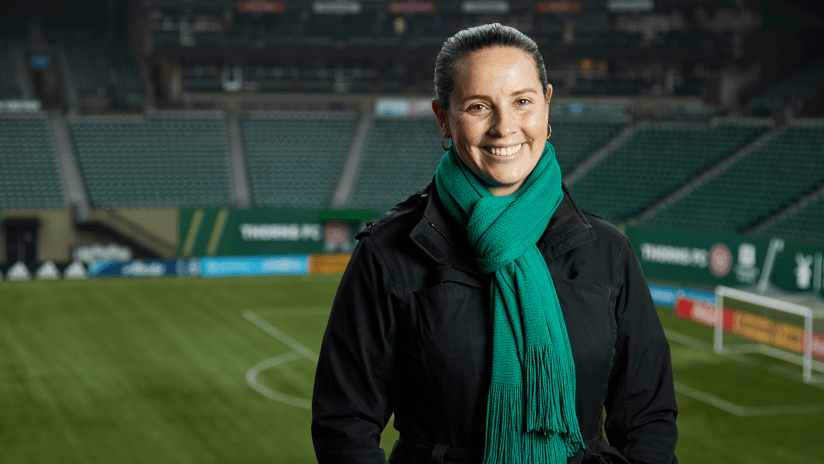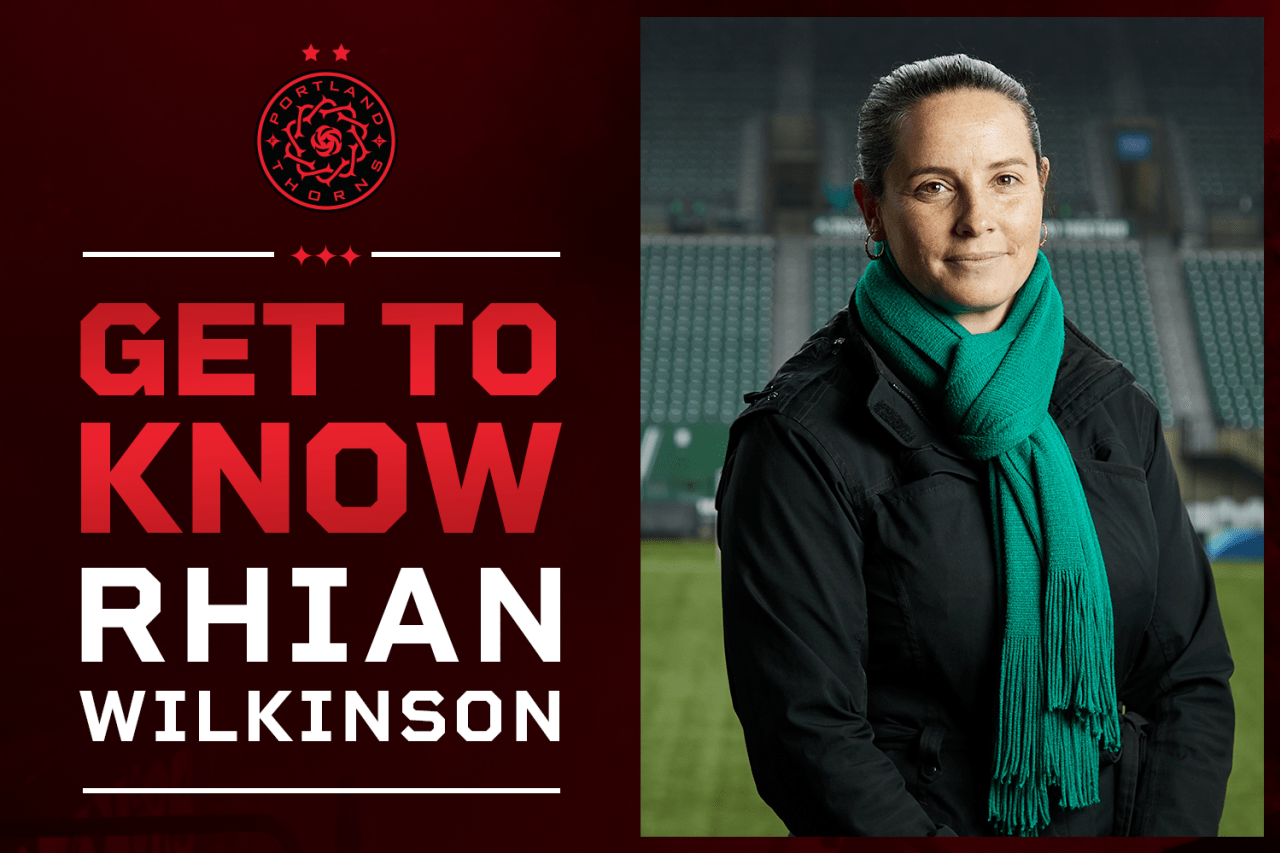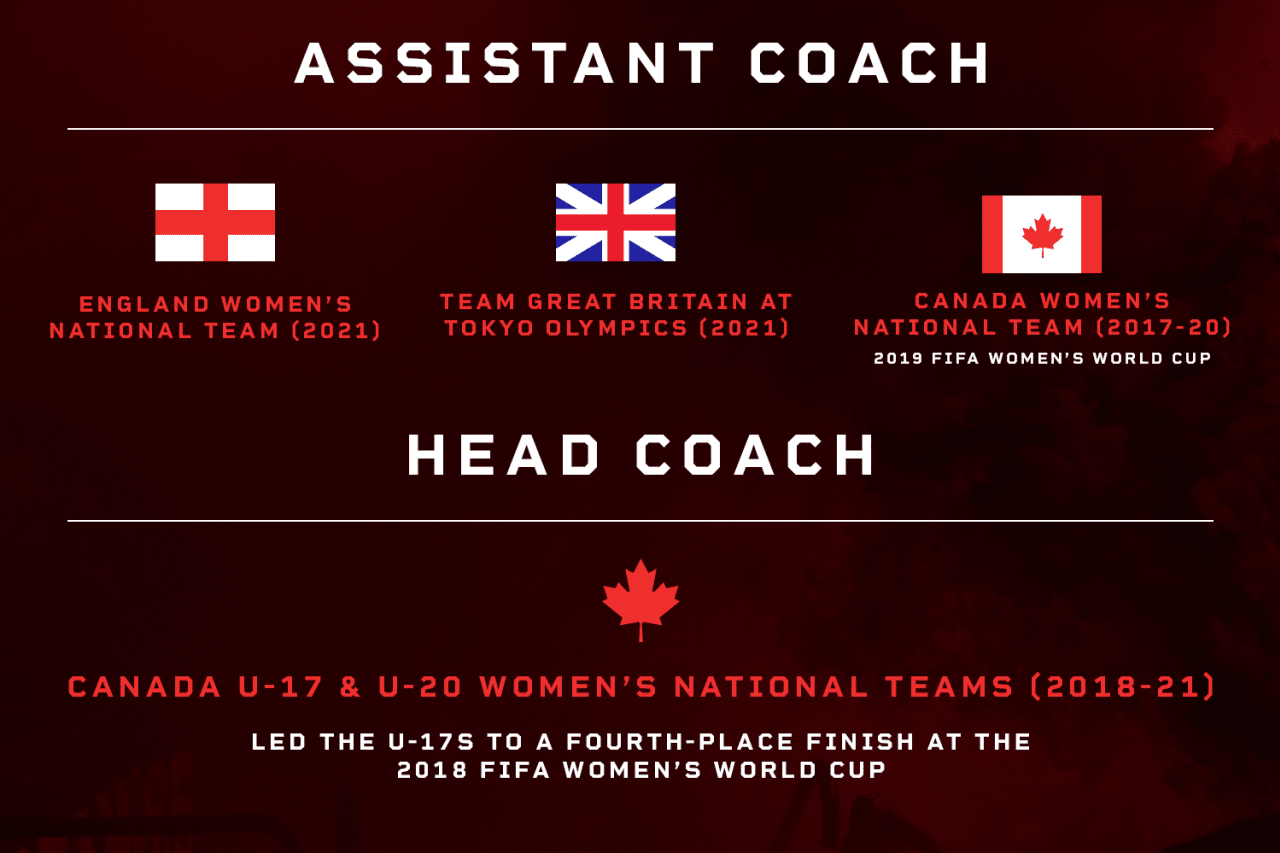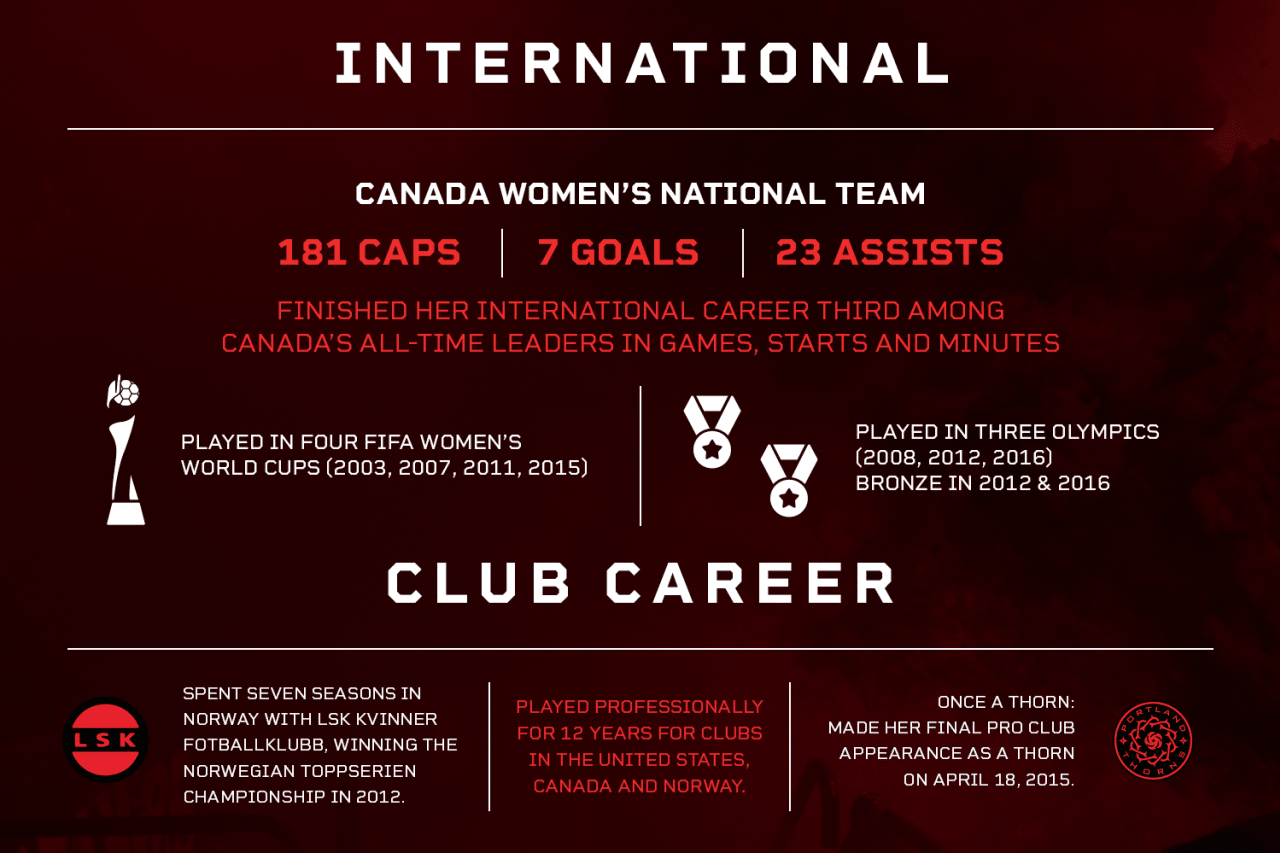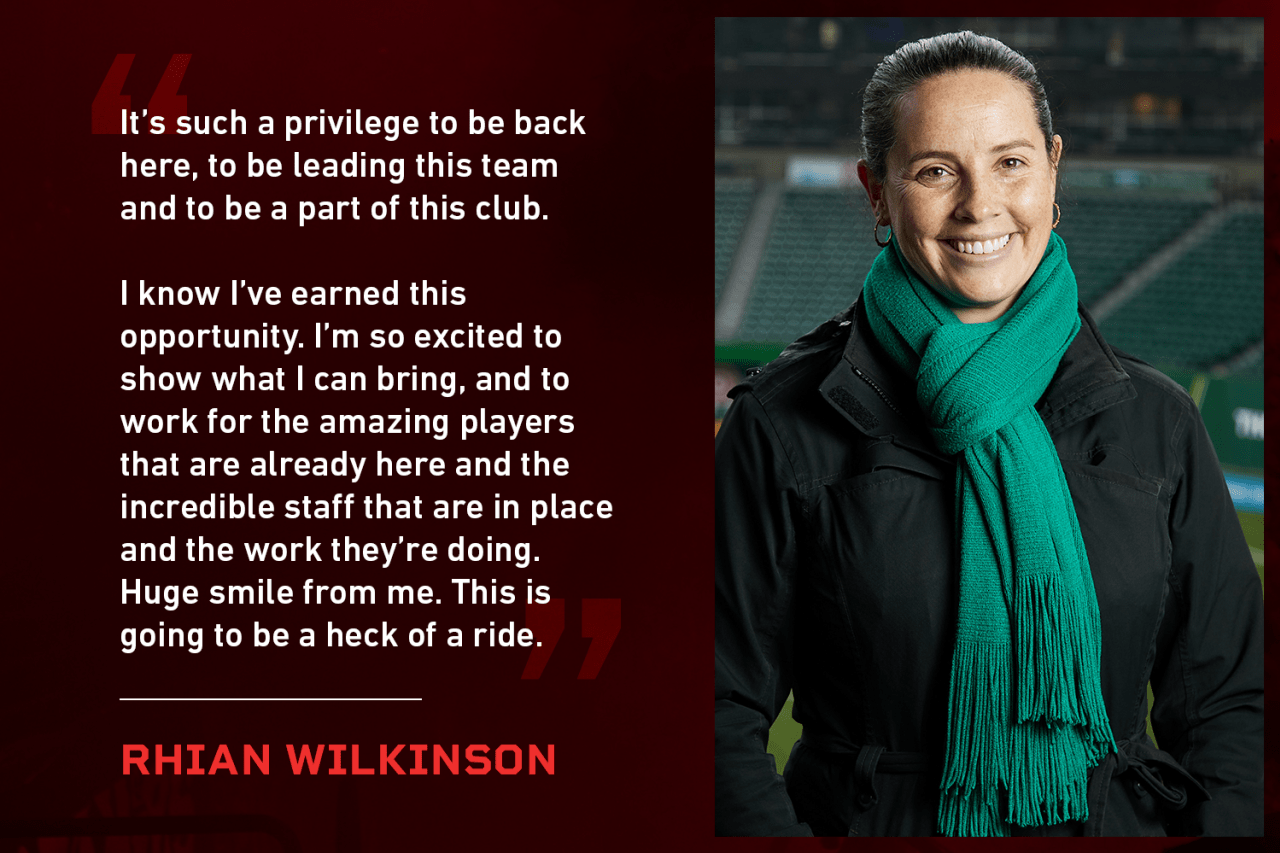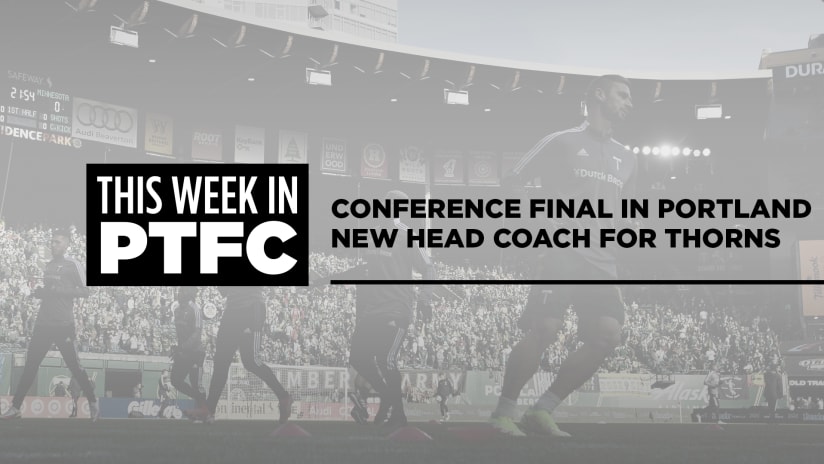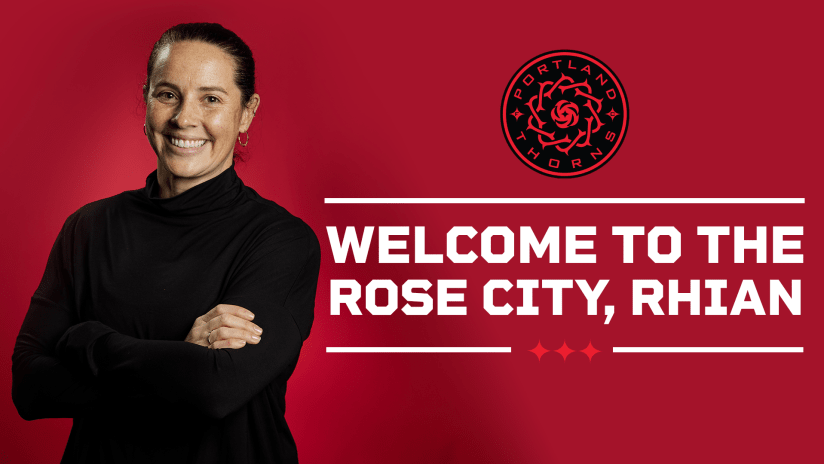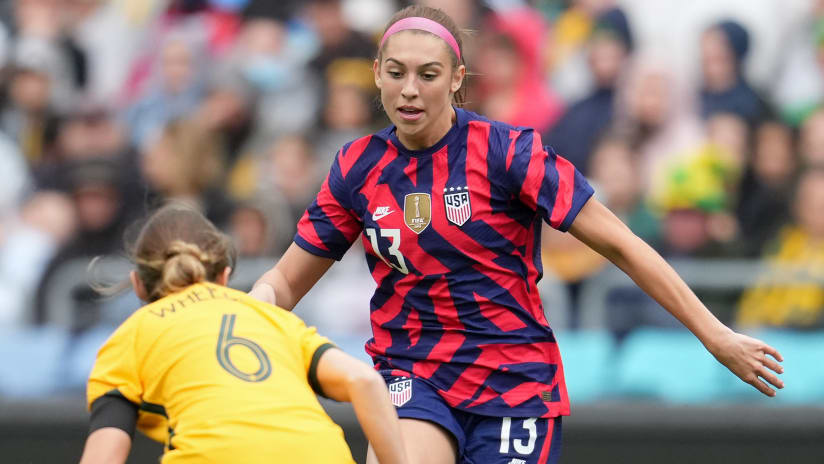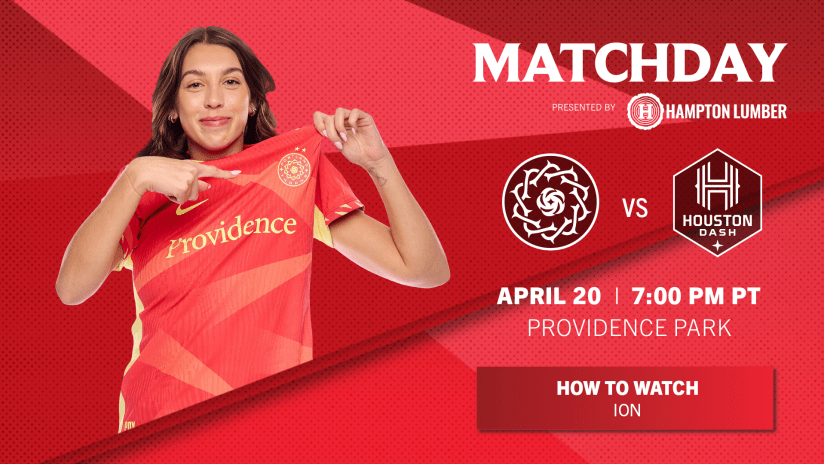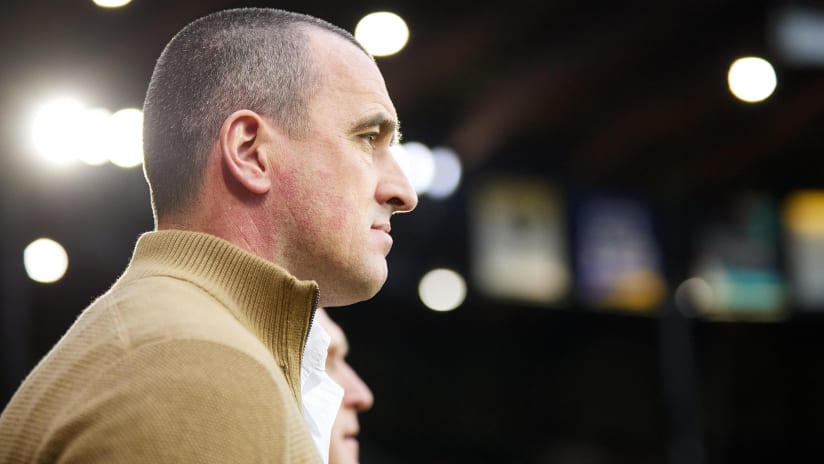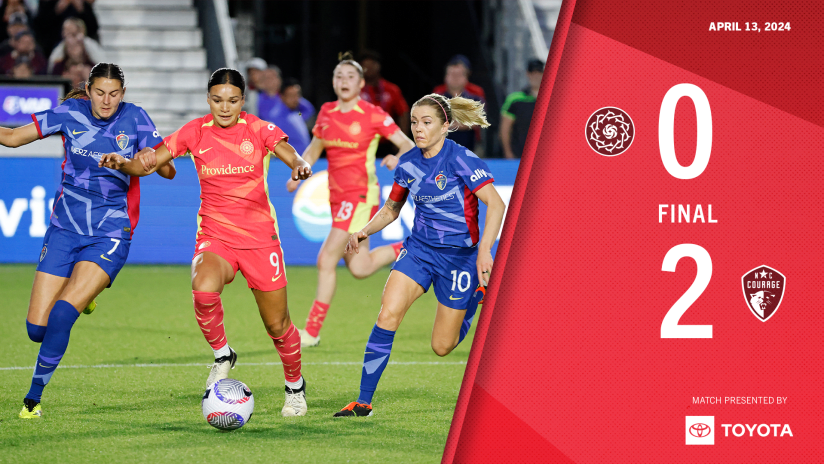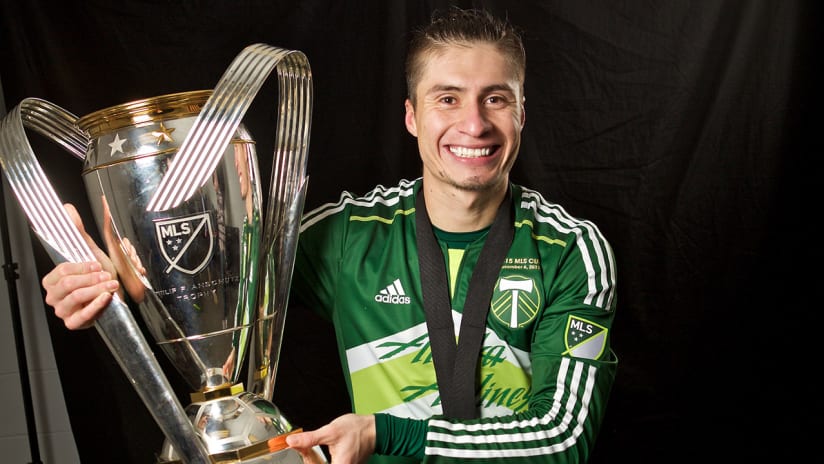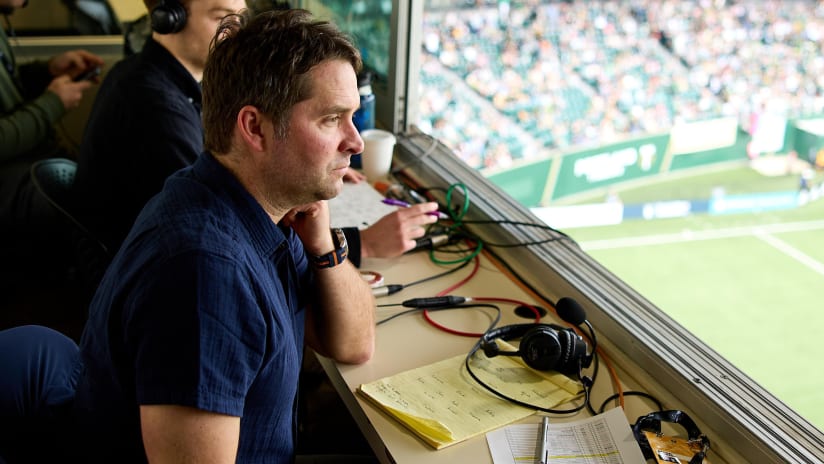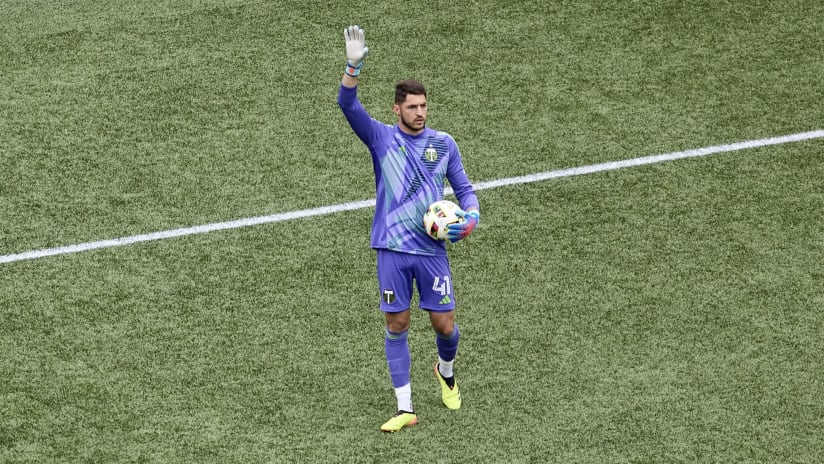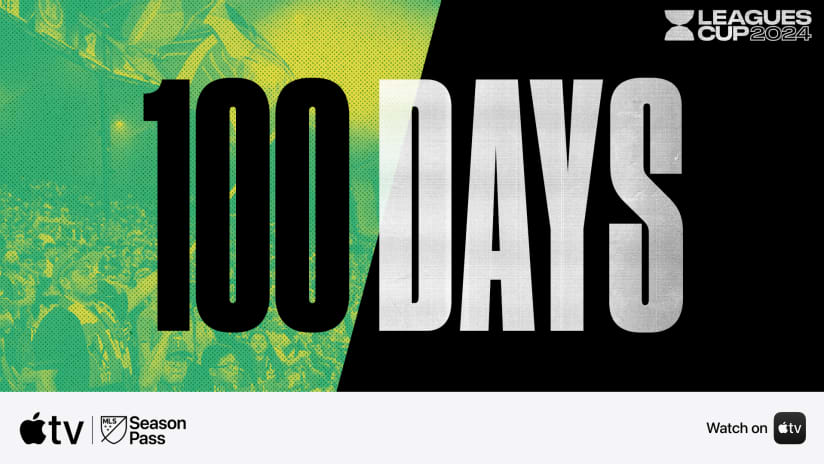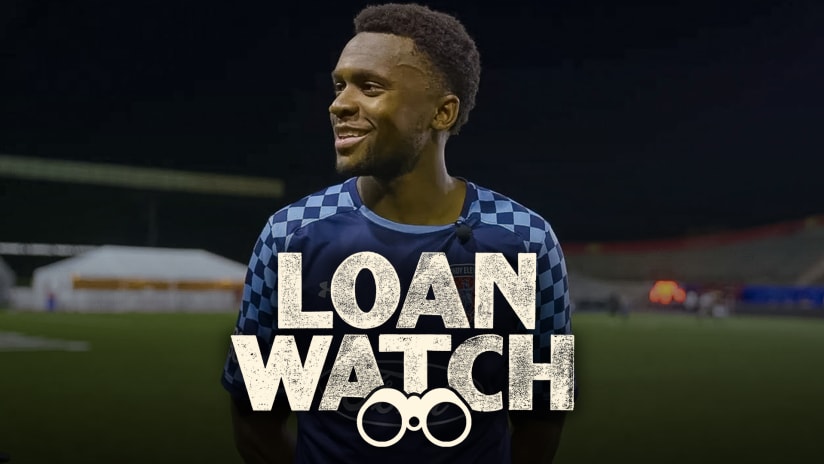PORTLAND, Ore. — Rhian Wilkinson has a lot of explanations for why she’s the new Portland Thorns FC head coach. Most come down to her experience – her life in soccer – but one speaks to something more personal. “I’m one of those stories of someone who gets interested in something and is willing to dive in and say, ‘Yes’ to opportunities.” It’s difficult to count all the “Yes(es)” that have brought her back to Portland.
Like all of us, she has multiple origin stories. This is just Wilkinson’s latest – the third we’ve seen from the public eye. Before now, there were her origins as a high-level player, with roots in Quebec and at the University of Tennessee before a long professional career, mostly in Norway. Still before that is an origin story built around Danish and Welsh parents who raised a family in Canada, with one of their children going on to earn a life in high-level soccer.
Wilkinson’s newest origin story is more about her time away from the field, albeit still in the game. As of yesterday, the player who accrued 181 appearances and three Olympic bronze medals as a Canadian international has one of the highest profile coaching positions in the women’s soccer world.
“This was the job. I have to say that,” she conceded, sitting down for an interview prior to her new club’s formal announcement. “This was the job that every coach would have put their name in for, whether it be national team coaches or other club coaches.”
Many coaches tried. The candidate list numbered at least 13. The process took over five months and involved almost the entirety of the Thorns’ soccer operations. Staff, key players, and upper management were all involved in the interview process. Candidates applied from all over the women’s soccer-playing world.
How, then, did Wilkinson end up here? It was only six years ago that she was on the field at Providence Park, closing her playing career as a Portland Thorn. How, from 2015 to 2021, did Wilkinson go from 33 years old with expectations for her career’s final years to, at 39, the fourth head coach in Thorns FC history?
Wilkinson remembers her last time at Providence Park. It was short lived. “I probably have some sort of record here for the shortest playing career,” she says, ironically. “I believe I got 45 minutes of playing time.” In the process, she suffered the injury that would shift her life away from the field.
“I ended up having to end my contract early. I tore my hamstring off the bone,” she says. “It required a lot of surgical intervention but also recovery. I used that time to go get my coaching badges.”
Coaching was supposed to be her calling. “I wanted to be an English professor,” she explains. “That was my goal in life.” When asked whether she ever saw herself staying in the game, she gets to the point, quicky. “I did not want to be a soccer coach. That was not my ambition.”
During a long recovery from injury, she began taking coaching courses and working toward her professional badges. She started working with players at the youth level and quickly saw the parallels. Eventually, she was brought in to coach at Canada’s women’s youth levels.
“I realized that coaching is teaching,” she says, her face miming the epiphany that began her coaching path. “[Coaching is] a different form of teaching, but that privilege of working with young people who were just as in love with the game as I was made me want to pursue it.”
When she gets interested in something, as Wilkinson said, she dives in. Her coaching path says as much. Instead of taking time to a new vision, Wilkinson shifted immediately, with the coaching world around her taking notice.
“When I retired, I was asked to take on a new role that was called EPEC in Canada, which is Elite Player, Elite Coach,” she said. “Essentially, I worked for free, pretty much, but I got grassroots knowledge all the way up to the senior team environment.
“I was thrown in front of stadiums of people to talk about the game in Canada, and how we were streamlining. I’d come down to the States and work with executive coaching here to try to learn how to be a better leader, a better person who can stand in front of a room and be really clear on their messaging.”
“I got my coaching badges and just kept sort of advancing, getting opportunities.”
Wilkinson’s path through the Canadian coaching ranks was aided by her playing career, about which she’s unduly modest. “I think my advantage is, even though I was a national team player, I was probably more of a journeyman-type player.” The duration of her career created important connections, though. She made an impression on those within Canadian soccer.
“I was a player rep for the Canadian team for a long time,” she says. “That meant I brought a lot of the day-to-day issues or presentations we had to do to the board. I did a lot of that type of work, and I was also part of the leadership team, including (new Thorns general manager) Karina (LeBlanc) and (Thorns captain) Christine (Sinclair).
“There is a reason why people seem to group us together. Our nationality, let’s put that [aside]. We are three of many people who worked under (former Canada women’s national team head coach) John (Herdman) who were influenced by him, who wanted to stay in the game and to grow it.”
Herdman, now the head coach of Canada’s men’s national team, remains one of Wilkinson’s primary coaching influences. He came to Canada when the women’s team was at its lowest moment, following a last-place finish at the 2011 World Cup, and led them to a bronze medal at the next year's Olympics. The team made the quarterfinals of the 2015 World Cup and claimed another bronze medal by the time Herdman switched to the men’s national team. Along the way, he helped shape the next generation of Canadian soccer leaders.
“I’d be a liar if I didn’t say [he was] my greatest coaching influence. He is so clear on how me believes the game should be played,” she says, explaining, “what I have taken from him is being real clear on the structures, and creativity comes from the structure. [I] believe that has really informed how I like to coach, and I think the clarity players need in order to perform.”
From that reverence came Wilkinson’s coaching leap – when she decided to leave the Canadian umbrella. She did so in 2020, after serving as head coach for Canada’s under-17 and under-20 national teams. She had also served as an assistant with her country’s women’s national team since 2017. Despite being on a path for the highest levels of Canadian coaching, Wilkinson decided to go abroad.
“I did leave Canada. I left Canada during a pandemic,” she says. “I moved to England. I took on the England Lionesses, and then I took on Team GB at the Olympics during COVID. I hope to goodness that never [has to be] done again.
“It was really, really challenging, but also an incredible experience, and (provided) invaluable learnings for me, which definitely put me in good stead when looking to interview for this job. I do think I stand out because I’ve put myself in different situations than a lot of other coaches.”
For her, those challenges were a matter of identity. “I always felt comfortable to challenge,” she says of her playing career, though she’s clearly alluding to more. “I think that might be a gift from my parents,” she says, pausing to laugh. “It’s only a gift to certain people who aren’t challenged by me regularly.”
Leaving Canada during a pandemic was an important challenge. To that point, Wilkinson's obstacles has been centered on development, accruing knowledge, and advancing. They centered around changing her career's course. At the start of 2020, she challenged herself to reach another level. It was something she felt necessary to developing her own coaching identity.
“One of the first things you’re asked as a coach is what’s your philosophy,” she says, “and it’s a huge question, because usually if you haven’t got the experience, you end up just following what you know. So, for me, it was very important to work for different types of coaches after John Herdman, because he is such a strong personality and influence.”
Where that’s left Wilkinson is back in Portland, with a position she describes as “the job.” She’s run teams before, doing so at the U-levels in Canada, but this is a huge step. It’s her first chance to make a mark as a high-level head coach, and she knows it – just as she knows she’s inheriting a team that won four trophies since the fall of 2020.
“I am confident enough in myself and what I do to say that I will not be rewriting a successful book …,” she reassures. “I have to highlight the incredible staff that [former head coach] Mark [Parsons] is leaving behind …
“To follow that is an honor,” she admits. “It’s not something to be frightened of.”
She’s also not afraid of the fact that she is new, something that comes with its own virtues. No matter the success the Thorns have had in recent years, Wilkinson represents a chance to inject new ideas, as well as an opportunity for players to start something new. As much as she wants to preserve the positives of what she’s inheriting, Wilkinson knows from first-hand experience that new voices can bring new positives.
“When you get a new coach, there is new energy,” she explains. “People sometimes call it the honeymoon period. Whatever you want to call it, there’s always a new energy because the players, especially those that maybe haven’t seen as many minutes, feel like they have an opportunity, again. Those that were getting regular minutes have to prove that they’re deserving of them.”
Still, she is one of the first to concede, “This team is doing a lot of things really, really well right now.” This is a team that will expect more trophies in the near future.
This is also Wilkinson's latest “yes,” her latest dive – the opportunity she has worked for since her soccer life changed course. After seven years of challenges, Wilkinson is ready for a new one. She's ready for her Portland return.

